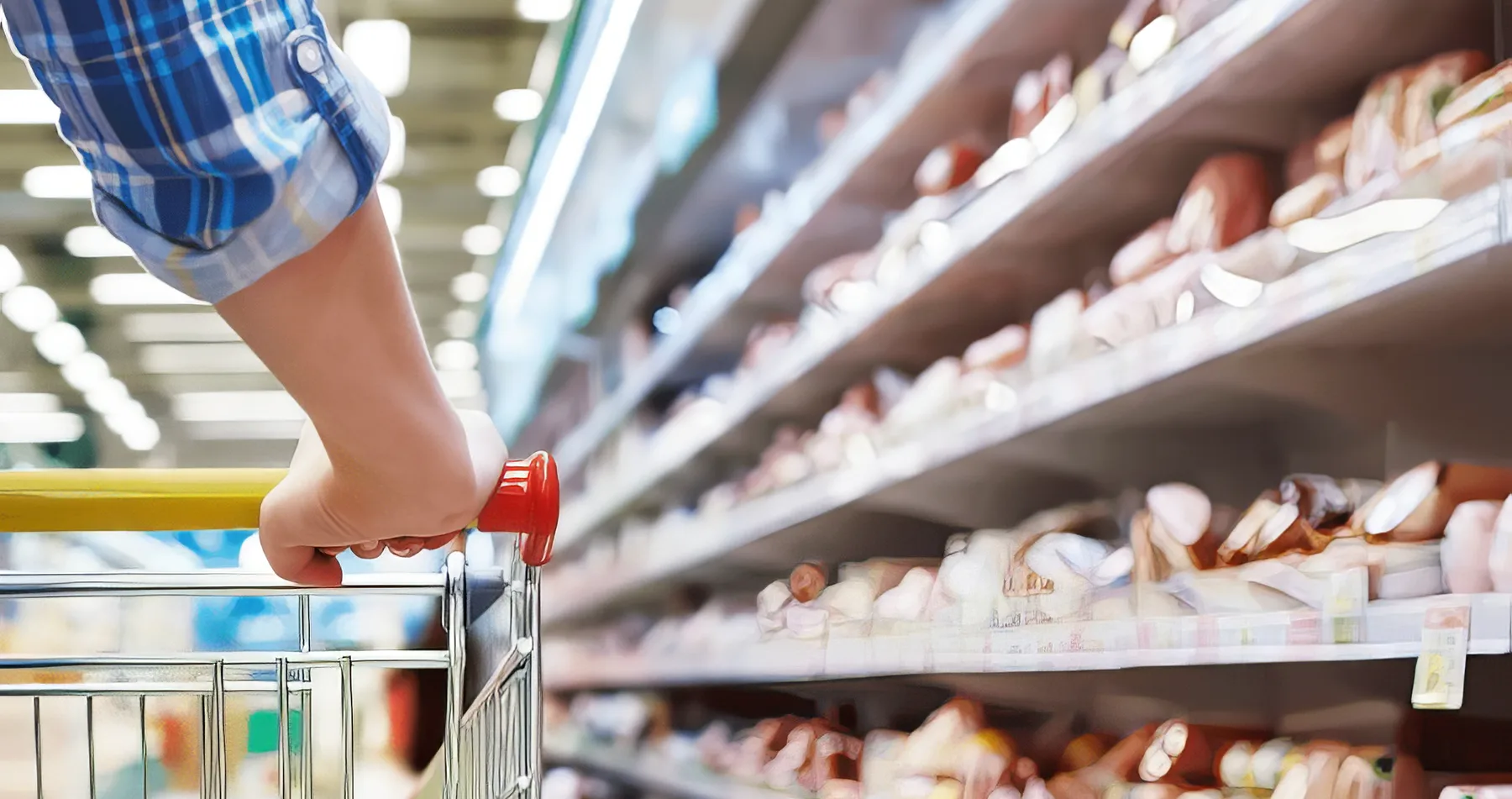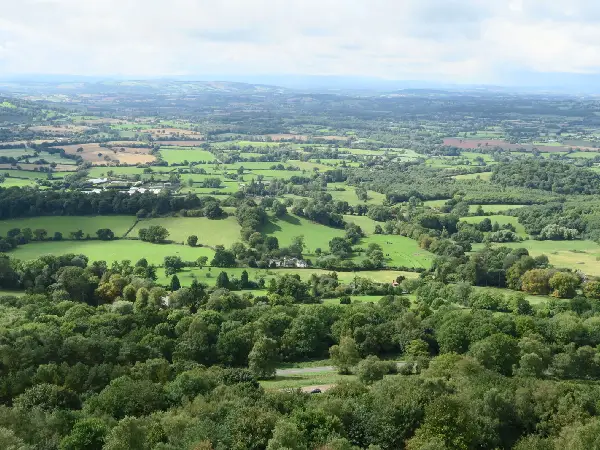
Creative campaigns amid crisis in food retail and processing
At the end of week ten of lockdown, the latest episode of our Agri Food Comms-Cast focussed on transitioning marketing strategies through the Covid-19 pandemic. Many organisations have emerged from survival mode to quickly assess the situation and start implementing innovative campaigns in both retail and processing sectors. This week, we welcomed three guests to explore how their marketing plans are evolving within the wider crisis context.
Whatever the challenges of recent weeks, certain sectors have experienced rapid growth. In fact, grocery sales have risen at their fastest rate in the past 25 years. Research group, Kantar, showed supermarket spending hit £31.4billion in the 12 weeks to May 17, an increase of almost £4billion compared to the same period last year.
Written by...

Supermarkets embracing change
One of the supermarkets that has impressed us with its unified strategic response has been Morrisons. The fourth biggest multiple operator in the UK, Morrisons has a 10.4% market share.
We were delighted to welcome Sophie Throup, Morrisons’ head of agriculture to hear how they’ve been quick to implement a wealth of measures, with the objective of supporting consumers, key workers and their supply chain partners.
Established in 1899, the business has long championed British produce and farmers and these fundamental principles have been the driving force behind Morrisons’ dynamic response.
After dealing with the initial unplanned supply chain disruption and ensuring the safety of staff and customers, Morrisons’ CEO called for the business to create ‘an explosion of support for British’. Consequently, the retail team turned its attention to helping the British farming community that has been supplying the supermarket for generations.
As we’ve heard in our previous podcasts, the closure of foodservice has had a massive knock on effect on farmgate prices. Without prime cuts being supplied to restaurants it has also caused serious carcass imbalance problems.
As a retailer and meat processor, Morrisons were able to demonstrate their commitment to British farmers and stimulate extra demand instore. They started by profiling British produce and farming, wrapping The Sun newspaper with a 4-page advert calling for support of British mince and milk. It was a message that resonated with the brand’s rich heritage of promoting home grown and reared food.
In store, Morrisons took just ten days to rebrand and open its steak counters and seafood bars. These dedicated areas featured half price promotions on British meat and fish to stimulate sales of prime cuts to address carcass balance and drive value back to farmers. The campaign delivered significant results; in the first week 50% of all the steak bought in the UK was purchased at Morrisons. Sales of British fish have also increased by 60%.
Additionally, Morrisons launched a whole new business enterprise with its Essential Food Boxes which were primarily aimed at vulnerable customers who couldn’t get in store. However, the positive consumer response led the retailer to develop a range of dedicated boxes with a focus on occasions such as Ramadan, BBQ and a Cream Tea Box created specifically for VE Day. It’s been a resourceful approach to creating new routes to market.
Sophie concluded that while the pandemic situation remains fluid, Morrisons will continue to respond and adapt to changes in consumer purchasing habits. She admits that the company’s principles remain the same in terms of promoting British but that their marketing activity has become much bolder as a result of lockdown and the immediate challenges it presented.

Processors committed to tackling climate change
As a business facing enormous transitional challenges, global food solutions provider OSI, has had its work cut out diverting supplies from food service to retail. Operations director and EU head of sustainability, Claire Donoghue, joined the Agri Food Comms-Cast to explain that even while tackling these logistical pressures, the wider meat processing industry has maintained its focus on addressing climate change.
In Claire’s words, Covid has granted a false ‘hiatus’ from environmental issues. With almost daily reports in the press about the reduction in carbon emissions during lockdown, Claire believes these kinds of reports can cause problems by diverting attention away from consumers’ legitimate concerns with beef production.
The reality is that many businesses in the agricultural sector are introducing numerous initiatives to reduce its carbon footprint and there remains an opportunity to dispel the myths and half-truths being circulated in the media. As Claire explained; “The narrative often doesn’t match the work that’s going on in the industry.”
Agriculture has a crucial role in working towards achieving carbon emissions targets and reductions by 2050 so this must continue to be the focus. Carbon sequestration, different farming techniques and technologies – these are the good stories to be shared; with agriculture being part of solution rather than part of the problem. For this to be a success, collaboration within the industry is key and an open dialogue must be established. This is especially true when it comes to managing the impact of the vegan sector and the introduction of ‘meat alternative’ products.
This process started with the introduction of the Global Roundtable for Sustainable Beef, which Claire has chaired for the past two years, as well as leading the technical European working group. Many industry-led organisations are working to introduce measurable targets. This is supported by work being undertaken at dedicated research facilities which investigate the impact of wide-ranging issues from antibiotics to rearing youngstock and general farm management and assessing the financial impact of different farming systems. The great results from these trials are being shared with focus groups so that farmers can see the impact for themselves. Claire concluded by highlighting the value of sharing best practice so the whole industry can benefit in the long term.

National BBQ Week
The third episode of the podcast coincided with the 24th annual National BBQ Week. Catherine spoke to the awareness week’s founder, Brian George, to see how the current restrictions had impacted the organisation’s plans for 2020.
Brian explained how the format for this year’s National BBQ Week changed in line with social-distancing and stay-at-home rules which enabled them to reach out to fans in new ways. The usual BBQ Roadshows were replaced with a week-long celebration that focused on helping everyone make the best of their lockdown BBQs with the family.
BARBI for BRITAIN encouraged participants to share their flame grilled fun on social media and donate to worthy causes supporting front line key workers and vulnerable people.
Blessed with some excellent sunny weather, Kantar’s latest grocery figures indicate that a spell of warmer weather helps encourage shoppers to spend £17million more on burgers and £24million more on sausages year-on-year. A great indicator that British meat is still much loved by the UK public and supported by businesses throughout the supply chain who work tirelessly to champion British agriculture.
More recent insights

Why hire a PR agency when you could employ someone?

What is regenerative farming?
